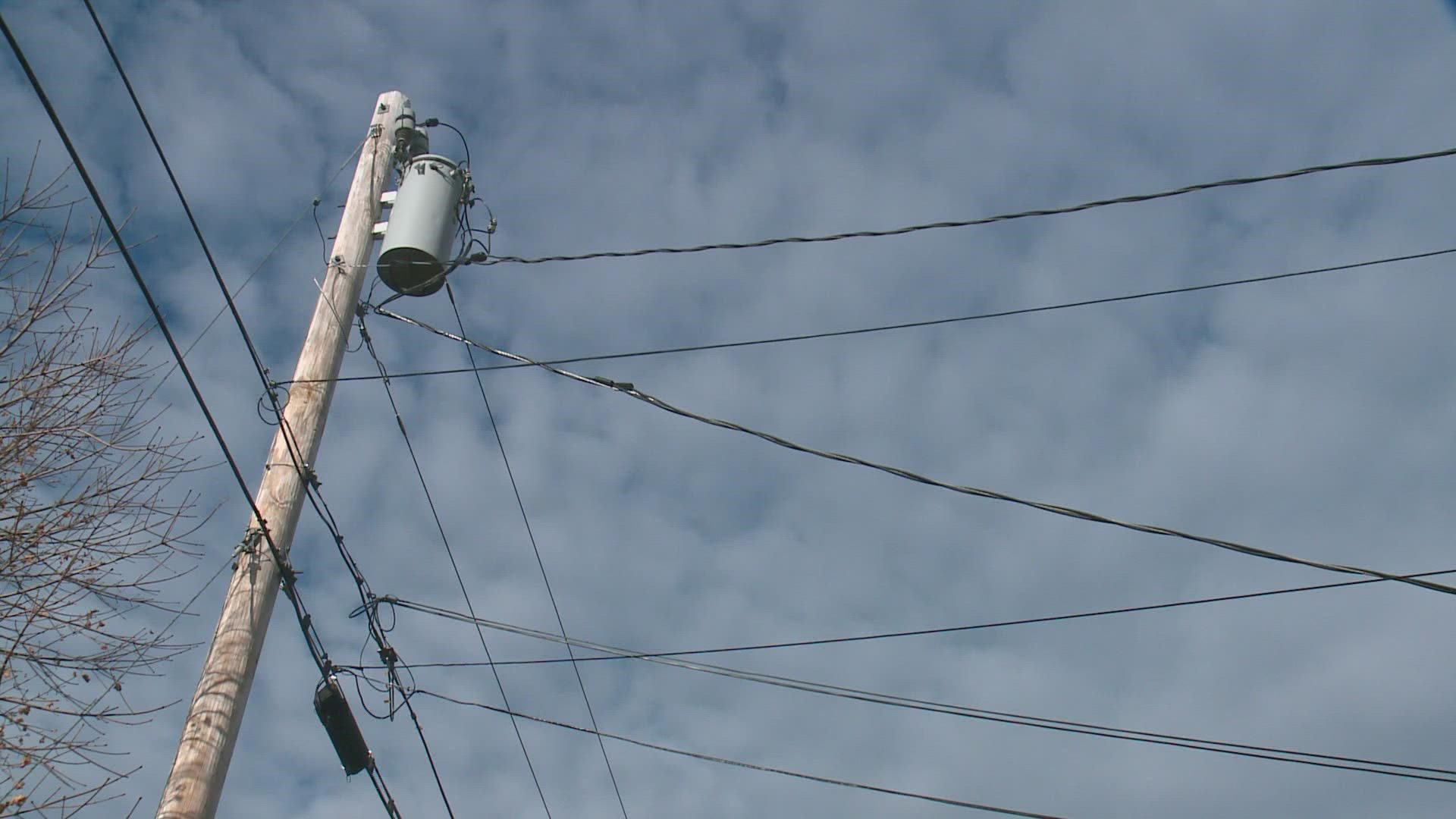HALLOWELL, Maine — Even the chair of the Maine Public Utilities Commission agrees it's bad timing to be approving higher electricity rates. Inflation is up and gasoline prices, food prices, and most other costs are climbing.
Add electricity to the list.
For the majority of customers of Central Maine Power and Versant Power, the electricity portion of their monthly bills will increase more than 80%.
The increase for Versant Power customers was approved by the Maine Public Utilities Commission Tuesday, and on Wednesday they approved an 83.4% hike for the standard offer for CMP customers.
“For example, the offer for residential customers will have a price of 11.816 cents per kilowatt-hour up from 6.449 cents this year,” Phil Bartlett, chair of the three-member PUC, said.
In Maine, electric utilities are not allowed to also generate power. That was a result of deregulation in the late 1990s. Most electric bills come from CMP or Versant, but only half of the monthly payment is for those companies that deliver the power. The rest goes to whichever company the customer has chosen to supply their electricity. For most people, it’s the standard offer, negotiated annually by the PUC.
The standard offer for CMP customers will jump by 83.2 percent, according to Bartlett.
For what the PUC considers an average customer, using 550 kilowatt-hours per month, the bills will increase by $30 from the current average of $100 per month to $130.
That’s a significant amount, said Maine Public Advocate Andrew Landry.
“A 30% price increase in anything is a lot, obviously, but electricity is an essential service,” Landry said.
But he and the PUC said not to blame CMP or Versant.
The problem, he said, is a spike in natural gas prices. Specifically, liquified natural gas, which is a prime fuel source for generating electricity in much of New England.
“There’s a worldwide crunch in price for liquified natural gas, and here in New England we are dependent on LNG, particularly on cold days in the winter to provide a resource to run natural gas plants,” Landry said.
Maine generates about 70% of the electricity we use, according to a 2019 federal report, and of that, 18% came from natural gas, mostly from Canadian pipelines.
But because Maine is part of the regional electric grid operated by ISO New England, our prices are determined based on the consumption in the rest of New England, where LNG prices are expected to go very high in January and February, according to Landry.
As a result, the standard offer bids to the PUC shot up with the expected higher costs for 2022.
“We know this hurts. The last thing we want to see is this kind of bill," Bartlett said, following the PUC vote.
For CMP, which has been the target of angry customers since a 2018 billing system failure, the price jump may be one more thing to make customers mad, even though the Advocate and the PUC both said the company is not to blame.
Customer Service Vice President Linda Bell said they worry about that.
“I think people don’t understand the difference between supply and delivery, and so I am worried they will think this is a CMP rate increase, which we know it is not,” Bell said.
She said the company welcomes calls or other inquiries from customers about the situation and will do all it can to help direct low and fixed-income customers to programs that can help them cope with the higher bills.
“I think there is going to be a significant number of customers for whom this presents a challenge. Thirty dollars a month, an average increase for a residential customer, can be a lot on a limited income, for senior communities, or those on [a] fixed income. This is $30 a month that has to come from somewhere," she said.
Public Advocate Landry, whose job is to advocate for consumers, said some may want to explore electricity suppliers other than the standard offer. He said there are several listed on the agency website.
“The standard offer is locked in for the coming year, but customers are free to drop off the standard any time and switch to a competitive supplier. Once a month you can do it,” he said.
Landry warned customers considering the switch should study the website details carefully and ask questions. He said those other suppliers also predict high prices this winter but may see prices ease in the spring.
However, Bartlett said his agency has taken some of those changes into account, and that the standard offer is based on multiple bids and averages the predicted costs throughout the year.

